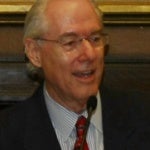SOF Forum: Breakthroughs in Brain Health, Immunity, and Wellness
Not a day goes by when we aren’t reading about the latest discoveries on how to keep our minds and bodies healthy. Despite living in a time when we know more about the brain and disease than ever before, mental illness, Alzheimer Disease, and autoimmune disorders are on the rise in the United States. Today, 1 in 3 of us will face a diagnosis of Alzheimer Disease or other dementia, close to 1 in 5 of us will be diagnosed with major depression or anxiety, and 1 in 5 will be diagnosed with an autoimmune disease. Why is this happening and what can be done to stem or even reverse the tide? What role does the microbiome play in our brain health and immunity and how will our growing understanding of it change the way autoimmune patients are treated? Brain disorders including depression, anxiety, and addiction have proven to be amongst the most difficult to overcome. What promise do new treatments, including controversial ones like ketamine and psilocybin and deep brain electrical stimulation hold? Join us for a conversation with leading experts from the Cleveland Clinic, Duke University, Johns Hopkins, Johnson & Johnson, and Mount Sinai to find out what the future holds in terms of prevention, treatments, and potential cures for these maladies.
Speakers include Dr. Robynne Chutkan, Dr. Kafui Dzirasa, Dr. Julianne Holt-Lunstad, Dr. David Hough, Dr. Mark Hyman, and Dr. Matthew Johnson, Dr. Rudolph Tanzi, George Vradenburg.
*This event and registration site is open to members of the Society of Fellows. For more information about the Society of Fellows, please contact us at (970) 544-7980 or sof@aspeninstitute.org.
Presenter Biographies:
 Jennifer Bradley (moderator) is the founding director of the Center for Urban Innovation and the co-author, with Bruce Katz, of ”The Metropolitan Revolution” (Brookings Press, 2013). At the Center for Urban Innovation, she has led projects on: how local-level regulations can help or hinder innovation and economic inclusion; how cities can prepare for the advent of autonomous vehicles; how inclusive innovation happens in businesses, philanthropies, local governments, and non-profits; and the challenges that women and people of color have in accessing capital.
Jennifer Bradley (moderator) is the founding director of the Center for Urban Innovation and the co-author, with Bruce Katz, of ”The Metropolitan Revolution” (Brookings Press, 2013). At the Center for Urban Innovation, she has led projects on: how local-level regulations can help or hinder innovation and economic inclusion; how cities can prepare for the advent of autonomous vehicles; how inclusive innovation happens in businesses, philanthropies, local governments, and non-profits; and the challenges that women and people of color have in accessing capital.
Prior to joining the Aspen Institute, Jennifer was a fellow at the Brookings Institution Metropolitan Policy Program, where she worked on the role of metropolitan areas in the nation’s economy and politics. She has also spoken widely about urban issues, at The Aspen Ideas Festival, South by Southwest, the Code for America Summit, and Techonomy, and her essays have appeared in Newsweek, The New Republic, The Atlantic Monthly, and Next American City.
 Dr. Robynne K. Chutkan is one of the most recognizable gastroenterologists in practice today, and the author of the bestselling digestive health books Gutbliss, The Microbiome Solution, and The Bloat Cure. She received her bachelor’s degree from Yale University and her medical degree from Columbia College of Physicians and Surgeons, where she also did her internship and residency and served as chief resident. She completed her fellowship in gastroenterology at Mount Sinai Hospital in New York. Dr. Chutkan has been on the faculty at Georgetown University Hospital since 1997. In 2004 she founded the Digestive Center for Wellness, an integrative gastroenterology practice incorporating microbiome analysis and optimization as well as nutritional therapy as part of the therapeutic approach to digestive disorders.
Dr. Robynne K. Chutkan is one of the most recognizable gastroenterologists in practice today, and the author of the bestselling digestive health books Gutbliss, The Microbiome Solution, and The Bloat Cure. She received her bachelor’s degree from Yale University and her medical degree from Columbia College of Physicians and Surgeons, where she also did her internship and residency and served as chief resident. She completed her fellowship in gastroenterology at Mount Sinai Hospital in New York. Dr. Chutkan has been on the faculty at Georgetown University Hospital since 1997. In 2004 she founded the Digestive Center for Wellness, an integrative gastroenterology practice incorporating microbiome analysis and optimization as well as nutritional therapy as part of the therapeutic approach to digestive disorders.

Dr. Kafui Dzirasa is an Associate Professor at Duke University with appointments in the Departments of Psychiatry and Behavioral Sciences, Neurobiology, Biomedical Engineering, and Neurosurgery. His ultimate goal is to combine his research, medical training, and community experience to improve outcomes for diverse communities suffering from Neurological and Psychiatric illness.
Kafui Dzirasa is the first African American to complete a PhD in Neurobiology at Duke University. His research interests focus on understanding how changes in the brain produce neurological and mental illness, and his graduate work has led to several distinctions including: the Somjen Award for Most Outstanding Dissertation Thesis, the Ruth K. Broad Biomedical Research Fellowship, the UNCF·Merck Graduate Science Research Fellowship, and the Wakeman Fellowship. Kafui obtained an MD from the Duke University School of Medicine in 2009, and completed residency training in General Psychiatry in 2016.
 Dr. James Hamblin (moderator) is a writer and senior editor at The Atlantic. He hosts the video series If Our Bodies Could Talk, for which he was a finalist in the Webby awards for Best Web Personality. He is a past Yale University Poynter Fellow in journalism, and he has lectured at Harvard Medical School, Wharton Business School, Columbia Mailman School of Public Health, and SXSW, among others.
Dr. James Hamblin (moderator) is a writer and senior editor at The Atlantic. He hosts the video series If Our Bodies Could Talk, for which he was a finalist in the Webby awards for Best Web Personality. He is a past Yale University Poynter Fellow in journalism, and he has lectured at Harvard Medical School, Wharton Business School, Columbia Mailman School of Public Health, and SXSW, among others.
His writing and videos have been featured in The New York Times, Politico, NPR, The Guardian, Elle, Mother Jones, The Washington Post, The Awl, The Los Angeles Times, and Marketplace, among others.

Dr. Julianne Holt-Lunstad is a professor of psychology and neuroscience at Brigham Young University, where she is also the director of the social neuroscience lab. She also has an adjunct professorship at Iverson Health Innovation Research Institute Swinburne University of Technology; Melbourne, Australia. Dr. Holt-Lunstad’s research is focused on the long-term health effects of social connection. Her work has been seminal in the recognition of social isolation and loneliness as risk factors for early mortality. Dr. Holt-Lunstad has worked with government organizations aimed at addressing this issue. She has provided expert testimony in a US Congressional Hearing, expert recommendations for the US Surgeon General Emotional Well-Being in America Initiative, served as a member of the technical working group for the UK Cross Departmental Loneliness Team, and is currently a member of a National Academy of Sciences consensus committee. She also serves as a scientific advisor for the Australian Coalition to End Loneliness, the Foundation for Art & Healing, the Rural Aging Advisory Council and research advisory panel for AARP Services, Inc. and United Healthcare.
 Dr. David W. Hough is currently the Esketamine Compound Development Team Leader (CDTL) where he is leading the late development of SPRAVATO (esketamine) nasal spray for two indications: treatment resistant depression (TRD) and major depression in patients with imminent suicidality. He is responsible for all the clinical, medical, scientific, manufacturing, quality, preclinical, and commercial aspects of the program. Esketamine is also being developed in pediatric patients 12-17 years old who have major depression with imminent suicidality.
Dr. David W. Hough is currently the Esketamine Compound Development Team Leader (CDTL) where he is leading the late development of SPRAVATO (esketamine) nasal spray for two indications: treatment resistant depression (TRD) and major depression in patients with imminent suicidality. He is responsible for all the clinical, medical, scientific, manufacturing, quality, preclinical, and commercial aspects of the program. Esketamine is also being developed in pediatric patients 12-17 years old who have major depression with imminent suicidality.
Dave was previously the Schizophrenia Disease Area Research & Development Leader and was responsible for the execution of an end-to-end strategy for development of medications and solutions to treat schizophrenia. He was also the Paliperidone CDTL responsible for the adult and pediatric development programs including oral INVEGA, INVEGA SUSTENNA/XEPLION 1 month, and INVEGA TRINZA/TREVECTA.
 Dr. Mark Hyman is a practicing family physician, an eleven-time New York Times bestselling author, and an internationally recognized leader, speaker, educator, and advocate in the field of Functional Medicine. He is the Pritzker Foundation Chair in Functional Medicine at the Cleveland Clinic Lerner College of Medicine and Director of the Cleveland Clinic Center for Functional Medicine. He is Founder and Director of The UltraWellness Center, chairman of the Institute for Functional Medicine, medical editor of The Huffington Post, and a regular medical contributor in the media for CBS This Morning, Good Morning America, CNN, The Dr. Oz Show, and more.
Dr. Mark Hyman is a practicing family physician, an eleven-time New York Times bestselling author, and an internationally recognized leader, speaker, educator, and advocate in the field of Functional Medicine. He is the Pritzker Foundation Chair in Functional Medicine at the Cleveland Clinic Lerner College of Medicine and Director of the Cleveland Clinic Center for Functional Medicine. He is Founder and Director of The UltraWellness Center, chairman of the Institute for Functional Medicine, medical editor of The Huffington Post, and a regular medical contributor in the media for CBS This Morning, Good Morning America, CNN, The Dr. Oz Show, and more.
 Dr. Matthew W. Johnson, Ph.D., Associate Professor at Johns Hopkins, is an expert on psychedelics, other drugs, and addiction. Working with psychedelics for 15 years, he has published 43 scientific papers on psychedelics. Matt published psychedelic safety guidelines in 2008, helping to resurrect psychedelic research. He published the first research on psychedelic treatment of tobacco addiction in 2014, and the largest study of psilocybin in treating cancer distress in 2016. His recent psilocybin review recommended placement in Schedule IV upon medical approval. He has personally guided >100 psychedelic sessions. Matt also conducts behavioral economic research on both addiction and sexual risk. He has published studies on nearly all psychoactive drugs classes, and is President of the Psychopharmacology and Substance Abuse Division of the American Psychological Association. Matt has been interviewed by the New York Times, Washington Post, Wall Street Journal, BBC, CNN, Fox Business News, NPR, CBS News, and NBC News.
Dr. Matthew W. Johnson, Ph.D., Associate Professor at Johns Hopkins, is an expert on psychedelics, other drugs, and addiction. Working with psychedelics for 15 years, he has published 43 scientific papers on psychedelics. Matt published psychedelic safety guidelines in 2008, helping to resurrect psychedelic research. He published the first research on psychedelic treatment of tobacco addiction in 2014, and the largest study of psilocybin in treating cancer distress in 2016. His recent psilocybin review recommended placement in Schedule IV upon medical approval. He has personally guided >100 psychedelic sessions. Matt also conducts behavioral economic research on both addiction and sexual risk. He has published studies on nearly all psychoactive drugs classes, and is President of the Psychopharmacology and Substance Abuse Division of the American Psychological Association. Matt has been interviewed by the New York Times, Washington Post, Wall Street Journal, BBC, CNN, Fox Business News, NPR, CBS News, and NBC News.
 Ruth Katz (moderator) is Director of the Health, Medicine and Society (HMS) Program at the Aspen Institute, an educational and policy studies organization based in Washington, DC. The HMS Program draws on the expertise of a diverse group of leaders in health and heath policy to inform the national conversation on health, medicine, and biomedical research.
Ruth Katz (moderator) is Director of the Health, Medicine and Society (HMS) Program at the Aspen Institute, an educational and policy studies organization based in Washington, DC. The HMS Program draws on the expertise of a diverse group of leaders in health and heath policy to inform the national conversation on health, medicine, and biomedical research.
Ms. Katz joined the Aspen Institute after serving from 2009 to 2013 as Chief Public Health Counsel (Democratic Staff) with the Committee on Energy and Commerce in the U.S. House of Representatives. The Committee has legislative jurisdiction over virtually every domestic health program, including Medicare, Medicaid, the National Institutes of Health (NIH), the Centers for Disease Control and Prevention (CDC), the Food and Drug Administration, and national health reform efforts. Ms. Katz was the lead Democratic committee staff on the public health components of the health reform initiative passed by the House of Representatives in November 2009.
 Alison Fitzgerald Kodjak (moderator) is a health policy correspondent on NPR’s Science Desk and president of the National Press Club in Washington. Her NPR work focuses on the business and politics of health care and how those forces flow through to the general public. Her stories about drug prices, limits on insurance, and changes in Medicare and Medicaid appear on NPR’s shows and in the Shots blog.
Alison Fitzgerald Kodjak (moderator) is a health policy correspondent on NPR’s Science Desk and president of the National Press Club in Washington. Her NPR work focuses on the business and politics of health care and how those forces flow through to the general public. Her stories about drug prices, limits on insurance, and changes in Medicare and Medicaid appear on NPR’s shows and in the Shots blog.
She joined NPR in September 2015 after a nearly two-decade career in print journalism, where she won several awards—including three George Polk Awards—as an economics, finance, and investigative reporter.
She and co-author Stanley Reed are authors of “In Too Deep: BP and the Drilling Race that Took It Down,” published in 2011 by John Wiley & Sons.
In January 2019, Fitzgerald Kodjak began her one-year term as the President of the National Press Club in Washington, DC.
 Dr. Rudolph Tanzi is a neuroscientist and geneticist with scientific expertise in Alzheimer’s disease and brain health. He serves as Vice-Chair of Neurology, Director of the Genetics and Aging Research Unit, and as a Director of the Henry and Allison McCance Center for Brain Health at Massachusetts General Hospital. He is also the Joseph P. and Rose F. Kennedy Professor of Neurology at Harvard Medical School.
Dr. Rudolph Tanzi is a neuroscientist and geneticist with scientific expertise in Alzheimer’s disease and brain health. He serves as Vice-Chair of Neurology, Director of the Genetics and Aging Research Unit, and as a Director of the Henry and Allison McCance Center for Brain Health at Massachusetts General Hospital. He is also the Joseph P. and Rose F. Kennedy Professor of Neurology at Harvard Medical School.
Dr. Tanzi received his B.S. (microbiology) and B.A. (history) at the University of Rochester in 1980 and his Ph.D. (neurobiology) at Harvard Medical School in 1990. He is one of the world’s leading scientists in research aimed at preventing and treating Alzheimer’s disease. His research studies and books have also focused on preserving and promoting brain health. In his research achievements, Dr. Tanzi served on the team that was the first to find a disease gene (Huntington’s disease) using human genetic markers, helping to launch the field of neurogenetics. Dr. Tanzi went on to identify all three early-onset familial Alzheimer’s disease genes: the amyloid precursor protein and presenilins 1 and 2. As leader of the Cure Alzheimer’s Fund Alzheimer’s Genome Project, he has identified several other Alzheimer’s disease genes, including the first shown to causing neuroinflammation in Alzheimer’s disease (CD33). Dr. Tanzi also discovered the Wilson’s disease gene and several other neurological disease genes.
 George Vradenburg is the Chairman and Co-Founder of UsAgainstAlzheimer’s(UsA2), a disruptive and catalytic force committed to stopping Alzheimer’s by 2020. The UsA2 platform seeks to escalate the fight against Alzheimer’s through a broad range of powerful voices from various walks of life. UsA2 serves as the convener of the only industry coalition dedicated to stopping Alzheimer’s — the Global CEO Initiative (CEOi) on Alzheimer’s – as well as the co-convener of a 90+ member coalition of the Alzheimer’s-serving community — Leaders Engaged on Alzheimer’s Disease. George was appointed to the World Dementia Council by Prime Minister David Cameron in March, 2014. In 2011, the United States Secretary of the Department of Health and Human Services named George to serve on the National Alzheimer’s Advisory Council on Research, Care and Services for the first-of-its-kind National Alzheimer’s Strategic Plan. In 2013 George was appointed by Congress to the Long Term Care Commission charged with devising a comprehensive long term support and services plan for the United States. George has testified twice before the U.S. Congress regarding the Global Alzheimer’s pandemic; conceived and supported the Alzheimer’s Study Group; and, through the Vradenburg Foundation, has supported the Alzheimer’s Disease International World Alzheimer’s Reports and the National Institute of Health’s Global Alzheimer’s Research Summit.
George Vradenburg is the Chairman and Co-Founder of UsAgainstAlzheimer’s(UsA2), a disruptive and catalytic force committed to stopping Alzheimer’s by 2020. The UsA2 platform seeks to escalate the fight against Alzheimer’s through a broad range of powerful voices from various walks of life. UsA2 serves as the convener of the only industry coalition dedicated to stopping Alzheimer’s — the Global CEO Initiative (CEOi) on Alzheimer’s – as well as the co-convener of a 90+ member coalition of the Alzheimer’s-serving community — Leaders Engaged on Alzheimer’s Disease. George was appointed to the World Dementia Council by Prime Minister David Cameron in March, 2014. In 2011, the United States Secretary of the Department of Health and Human Services named George to serve on the National Alzheimer’s Advisory Council on Research, Care and Services for the first-of-its-kind National Alzheimer’s Strategic Plan. In 2013 George was appointed by Congress to the Long Term Care Commission charged with devising a comprehensive long term support and services plan for the United States. George has testified twice before the U.S. Congress regarding the Global Alzheimer’s pandemic; conceived and supported the Alzheimer’s Study Group; and, through the Vradenburg Foundation, has supported the Alzheimer’s Disease International World Alzheimer’s Reports and the National Institute of Health’s Global Alzheimer’s Research Summit.